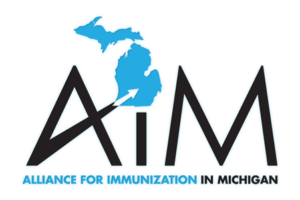These are regularly scheduled appointments where we discuss age-appropriate developmental issues or school performance, family issues including an updated family disease history, behavioral expectations, growth and nutrition, and age-related safety issues. Your child will have a head-to-toe physical exam, including vision and hearing screening, if age-appropriate. If additional screening tests are needed, they will be performed in the office or at an appropriate facility. Your child’s immunization record will be reviewed, and immunizations will be given following the recommendations of the American Academy of Pediatrics and the US Center for Disease Control.
Vaccines
We firmly believe in the effectiveness of vaccines to prevent serious illness and to save lives. We firmly believe in the safety of our vaccines.
We firmly believe that all children and young adults should receive all of the recommended vaccines according to the schedule endorsed by the Centers for Disease Control, American Academy of Pediatrics and the Advisory Committee on Immunization Practices.
We firmly believe, based on all evidence to date, that vaccines do not cause autism or other developmental disabilities.
We firmly believe that vaccinating children and young adults may be the single most important health-promoting intervention we perform as health care providers, and that you can perform as parents/caregivers. The recommended vaccines and their schedule given are the results of years and years of scientific study and data-gathering on millions of children by thousands of our brightest scientists and physicians.
The vaccine campaign is truly a victim of its own success. It is precisely because vaccines are so effective at preventing illness that we are even discussing whether or not they should be given. Because of vaccines, many of you have never seen a child with polio, tetanus, whooping cough, bacterial meningitis or even chickenpox, or know a friend or family member whose child has died of one of these diseases. Such success can make us complacent or even lazy about vaccinating. But such an attitude, if it becomes widespread, can only lead to tragic results.
Over the past several years, many people in Europe chose not to vaccinate their children with the MMR vaccine after publication of an unfounded suspicion (later retracted) that the vaccine caused autism. As a result of under-immunization, there have been outbreaks of measles and several deaths from complications of measles in Europe over the past several years.
Furthermore, by not vaccinating your child you are taking selfish advantage of thousands of others who do vaccinate their children and decreases the likelihood that your child will contract one of these diseases.
We are making you aware of these facts not to scare you or coerce you, but to emphasize the importance of vaccinating your child. We recognize that the choice may be a very emotional one for some parents. We will do everything we can to convince you that vaccinating according to the recommended schedule is the right thing to do. However, should you continue to have doubts, please discuss these with your health care provider in advance of your visit. Please be advised that delaying or “breaking up the vaccines” to give one or two at a time over two or more visits goes against expert recommendations, and can put your child at risk for serious illness (or even death) and goes against our medical advice as providers at Holland Pediatrics.
Finally, if you should absolutely refuse to vaccinate your child despite all our efforts, we will ask you to find another health care provider who shares your views. We do not keep a list of such providers, nor would we recommend any such physician. Please recognize that by not vaccinating you are putting your child at unnecessary risk for life-threatening illness and disability, and even death.
As medical professionals, we feel very strongly that vaccinating children on schedule with currently available vaccines is absolutely the right thing to do for all children and young adults. We have all fully vaccinated our own children.
Please feel free to discuss any questions or concerns you may have about vaccines with any one of us.





















